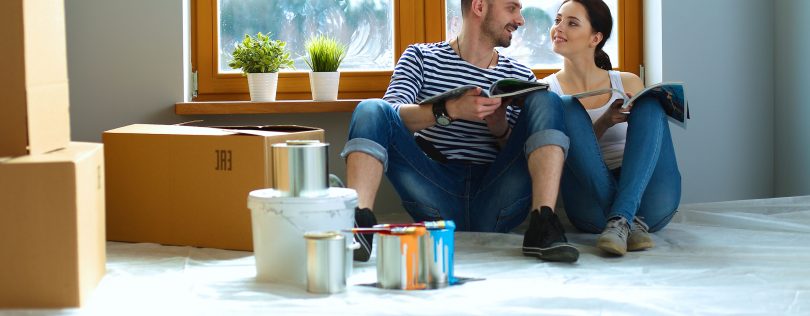If you’re in the market for a new house, this scenario may sound familiar: You’ve found a house in the right neighborhood, with the right number of rooms, and at the right price. Sounds great, right? There’s just one little problem: The house is a bit of a fixer-upper. But since everything else is just what you wanted, you’re left with the question: Do you continue looking for a house in which everything is in perfect condition, or do you buy this house and fix it up?
The latter is actually a pretty good option because it’s not every day that you find a house you like in your price range. While fixing it up can add to your expenses, it may just be worthwhile. First of all, you don’t need to do all the renovations at once, and second, renovations may be cheaper than a house in which everything is in perfect condition.
If renovating a new home sounds like a reasonable option to you, here are a few tips to help you through it:
- Go the DIY-route, if possible – If the issues in your new home are small, attempting to fix them yourself can save you a lot of money. However, the big caveat here is that you must be sure that you can handle the project — if not, it can end up costing you more if you have to call a contractor to fix the mess you’ve made. Which brings us to #2:
- Choose a reliable contractor – If the issues in your new house are too big for the realm of DIY, make sure to choose a reliable contractor. Typically, local contractors are best, so if you’re moving from out-of-town, make sure to do some research (with neighbors, online) and find one that has good recommendations and doesn’t cost an arm and a leg.
- Try to complete renovations before you move in – If you can, try to schedule your move-in date a few weeks after the previous owners leave. This can give you/the contractor enough time to finish renovating your house (and it is also easier to work without furniture in the way). Completing at least some of the renovations before you move means that you’ll feel calmer and happier when you arrive in your new home.
- Know what to expect – While it’s important to make a plan (and budget) and try to stick to it, be prepared for delays and extra costs. It can be extremely aggravating if work doesn’t get finished on time or materials cost more than the original quote — however, if you keep in mind that this is a possibility, you won’t be nearly as shocked, disappointed or frustrated if it happens.
Before Renovations
Before starting renovations in your new home, make sure to do the following first:
- Check for safety, plumbing, and electrical issues
- Clean any mold and take preventative measures for the future
- Consult with a professional about the best flooring for the weather conditions. Carpeting, tiles, hardwood — what’s the best for your climate? Also, if you’re interested in painting the walls and installing new floors, consult with a professional about which to do first — the type of flooring you choose may impact the order of your renovations
- Consider lighting, room size, and functionality when deciding on paint colors and where to place furniture and appliances
- Make sure maintenance is manageable. For example, you may want to install a pool, but first, find out what the costs of maintenance are. If they’re higher than you thought, a pool may not be the best option
Keep Your Eyes on the Goal
Renovations can be stressful. Moving can be stressful. So a combination of the two may feel like a double whammy. To get through this time, keep your goal in mind; picture your lovely new home after the renovations are complete, and think about how happy you’ll be living there. Sure, the process if hard, but once it’s finished, you’ll have many years to enjoy your beautiful new home.
Make sure to use our New Apartment Checklist to make the transition smooth and not forget anything.








